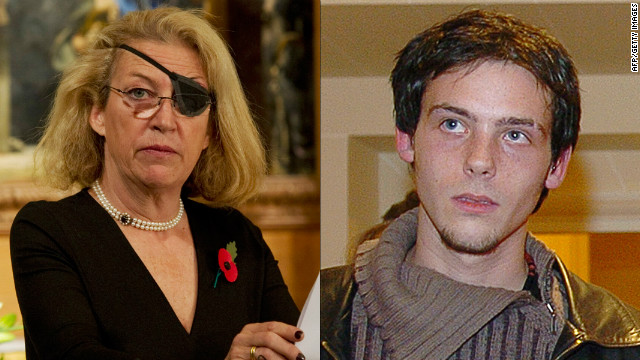By Scott Stewart
In recent weeks, insurgent forces in several countries have been forced to withdraw from territories they once held. Somalia's al Shabaab, which was
pushed out of Mogadishu in October 2011, was ejected from
Afmadow on May 30. The group now runs the risk of losing its hold once again on the port city of Kismayo, an important logistical and financial hub for al Shabaab.
Meanwhile in Yemen, al Qaeda in the Arabian Peninsula (AQAP) has been forced to retreat from towns it took control of last year in southern Abyan province, including
Jaar, Shaqra and Zinjibar. The organization controlled the area it seized from the government through its Ansar al-Sharia front organization. AQAP was able to capitalize on the
infighting that began in Yemen in 2011 and successfully diverted the government's focus away from AQAP and other militant groups. But in February, the election of new Yemeni President Abd Rabboh Mansour Hadi allowed the rift created by the infighting to be slowly healed. As a result, a combination of Yemeni soldiers and local tribesmen, backed by U.S. intelligence and fire support, have been able to
push back AQAP and Ansar al-Sharia in recent weeks.
Losing these cities will immediately and significantly affect AQAP's ability to reach its goal of establishing an emirate based on Sharia law in southern Yemen. However, the loss of this territory will not mean an end to the group, just as losses of territory by militants in Somalia and Syria do not mean those insurgent groups have been defeated definitively. The reason for this rests in the very nature of insurgent warfare. To insurgent groups, the loss of territory is a setback, but is only one episode in what they intend to be a very long war.
Ebbs and Flows
One of the basic tenets of modern Western warfare, as articulated by theorists such as Carl von Clausewitz, is the desire to destroy the enemy in quick, decisive battles that break the enemy's ability -- and will -- to fight. In contrast, one of the basic doctrines of insurgent warfare, as articulated by theorists such as Mao Zedong and Vo Nguyen Giap, is to decline decisive battle when the odds are not favorable and to live to fight another day. The insurgent wants to prolong the battle and create a drawn-out, grinding war that will gradually wear down the stronger enemy while insurgent forces build up enough strength to fight a conventional war and defeat their opponents. Western military leaders, then, seek to quickly resolve a war, while insurgents seek to prolong it by any means -- even if this means ceding control of territory until they can amass the strength to take it back.
In the modern jihadist context, this strategy was seen clearly in Afghanistan. The Taliban, when faced with overwhelming U.S. airpower in 2001, declined combat and permitted Northern Alliance ground forces to take control of Afghanistan's cities, rather than stand and fight until they were destroyed. The Taliban then launched a classic rural-based insurgency from the mountains using Pakistan as a haven for logistics and training. Iraqi government forces also took this approach when confronted by U.S. forces during the 2003 invasion.
Similarly, following the
December 2006 Ethiopian invasion of Somalia, Islamist militants from the Supreme Islamic Courts Council -- many of whom would later go on to form al Shabaab -- declined to fight decisive battles and instead took to harassing the Ethiopian army's extended supply lines. This forced the Ethiopians to pull back from key cities they had captured, like Kismayo, and allowed the militants to regain control of large portions of southern Somalia. It is not unusual, then, for insurgent forces to take territory, only to surrender it and reclaim it again later.
For insurgents, the operational concept is that if the enemy attacks in force, they retreat; if the enemy stays in place, they conduct harassing attacks; if the enemy tires, the insurgents press the attack; and if the enemy retreats, the insurgents pursue. The idea is to apply prolonged pressure, both physical and psychological, and to create a mounting number of casualties over time. At the same time, the insurgent organization works to strengthen its own organizational support base and military capability. The basic doctrine of counterinsurgency is to deny insurgents the ability to establish and strengthen their support base and improve their capability.
The support base is a critical element for any insurgency. By gaining the sympathy of the population -- the human terrain -- the insurgents can rely on the population not only for material support, recruits and shelter, but also for intelligence. It blurs the human terrain, making it more difficult to distinguish insurgents from the population. This is why the political element of the insurgent effort was stressed so heavily in the theories of men like Mao and Giap, who viewed their actions in terms of the people's war. They also believed that a population's long-standing grievances give the people the ability to endure suffering and heavy losses. The people therefore have a stronger will to fight than the privileged government combatant or the foreign imperialist invader. Having favorable human terrain also permits insurgents to apply pressure to the enemy by using unconventional warfare in rear areas with operations like sniper attacks, improvised explosive device attacks, assassinations and kidnappings.
Controlling Territory
It requires far more resources and effort to control and govern populated cities and towns than it does to conduct an insurgent campaign from the jungles or mountains. Maintaining control of a city requires many people to provide security while meeting the population's need for food, water, electricity and medical care. Such demands would use up many of the resources an insurgent organization would require to fight a protracted war of attrition, so it is not unusual for insurgents to abandon cities and foist the responsibility of caring for their populations upon the government. The goal in this approach is to force the government to expend its resources in order to meet the needs of the population, including security.
The insurgents can then come back to the cities with a small force to conduct harassing attacks on security forces or those cooperating with security forces, thus causing the government to invest even more resources in protecting the cities and reducing the number of forces available to pursue and fight insurgents in the countryside. Simply put, conducting insurgent attacks or terrorist attacks against the government's power center takes far less resources and manpower than it does to secure a town or city. Because of this, withdrawing from a city or town allows a militant group to actually increase the resources it has available to conduct attacks. But though there are benefits to harassing attacks, insurgents must be careful to avoid too many civilian casualties, because a high civilian death count can turn the population against the group, as happened with the umbrella militant organization Islamic State of Iraq in 2007.
Although there have been numerous urban guerilla movements -- and indeed, there is an entirely separate doctrine for urban guerilla organizations -- most insurgencies are based in rugged, ungoverned spaces. In such areas, fighters can seek refuge, build bases and train. Such ungoverned spaces have played an important role in the current insurgencies in Afghanistan, Somalia, Yemen and Mali. Another important consideration in many insurgent refuge spaces is the insurgents' ability to use an international border to keep the government from attacking them. This use of the borders was famously evidenced by the Viet Cong's use of Cambodia and Laos. More recently, this tactic has been utilized in the Taliban's use of Pakistan, the Iraqis' use of Syria and Iran, the Tuaregs' use of Libya and other Sahel countries, and the Syrian rebels' use of Turkey and Lebanon.
State sponsors can also provide significant help to insurgents. This was seen in the Soviet and Chinese help given to the Viet Cong and Viet Minh; and in more modern examples like the Iranian support for Iraqi insurgents, the Eritrean support for al Shabaab or the U.S., Turkish and Arab support for Syrian insurgents.
The real key in counterinsurgency is drying up the insurgents' base of support. Once that happens, the insurgents lose their ability to use the population as camouflage and as a source of recruits and material support, and the intelligence advantage is tipped toward the government. It is also helpful when the terrain available for insurgents to operate in is limited because it can allow counterinsurgents to systematically maneuver their armed forces in a way that forces the insurgents into open conflict. The Liberation Tigers of Tamil Eelam, for example, waged an insurgency against the Sri Lankan government from 1983 to 2009. The Sri Lankan government defeated the insurgents after India and then China provided material, money and advisers to government forces. That Sri Lanka is an island also served to constrict the Tigers' movements and forced them to try to hold territory, which ultimately led to their failure. Another successful suppression of insurgency occurred in Malaya from 1948 to 1960, when the British army used forced migration to separate the insurgents from their population and economic base. This eventually forced the Malayan Races Liberation Army to fight in order to attain necessary resources that are usually provided by the local population. This alienated the insurgents from the population and eventually led to British success.
Undercutting an insurgent group's support is normally quite difficult, especially when the group has access to large areas of rugged terrain. In Yemen, AQAP has been able to pull back from the towns it controlled to the harsh and desolate hinterlands where it was born. In the wild, tribally controlled areas of Yemen, the combination of hostile physical and human terrain will make it difficult to find and kill insurgents. There have been jihadists in Yemen since the late 1980s. They have long found shelter with the conservative tribes from which many of the jihadists originally hailed and to which they returned after fighting in places like Afghanistan. Many of the foreign jihadists in Yemen and Pakistan have married into influential tribes to increase their local support.
Syria's demographic situation and its long history as an Alawite-dominated police state have cultivated a great deal of hostility against the regime. It will be very difficult for the government to undercut foreign or domestic support for the insurgents. As with Syria's past insurgencies, Damascus will have to threaten and coerce the Sunni population into submission to maintain its grip on power.
Somalia is a confusing jumble of competing clans that have withstood attempts to govern them since the early 1990s. Even if al Shabaab becomes severely damaged as an organization, clan-based Islamist militancy of one form or another will persist in the region for the foreseeable future.
The insurgent strategy of fighting a long, protracted war means that insurgents' recent withdrawals from cities and towns in Yemen, Syria and Somalia do not necessarily mean that the wars in those regions will end anytime soon.
Read more: Insurgency and the Protracted War | Stratfor

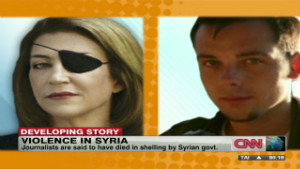 Deaths highlight danger in Syria
Deaths highlight danger in Syria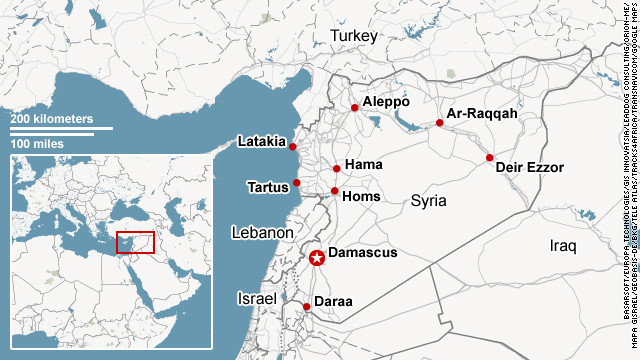 Syria map
Syria map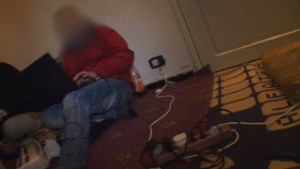 How Syrian opposition gets message out
How Syrian opposition gets message out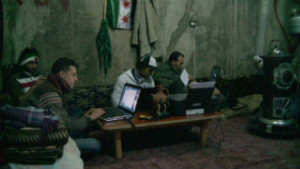 Syria media rebels lead Web revolution
Syria media rebels lead Web revolution